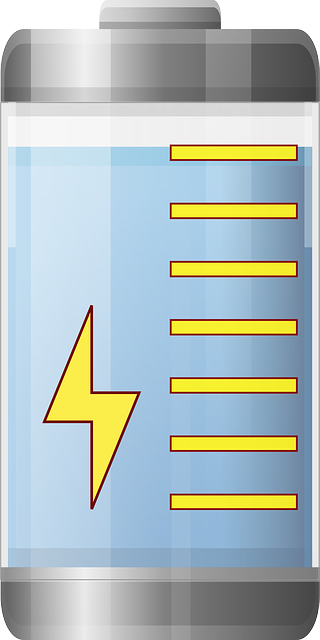Button batteries, common in devices like watches, remote controls, and hearing aids, are hazardous due to their lithium content, which can cause severe chemical burns if ingested. Proper disposal is crucial to prevent environmental harm as these batteries, when discarded improperly, release toxic substances that damage ecosystems and pose health risks to humans and wildlife. Children and pets are particularly vulnerable to the choking hazard these batteries represent. To mitigate these dangers, recycling programs and responsible waste management practices are essential. International guidelines like the WEEE Directive, along with efforts from organizations such as the United Nations and the European Union, support safe battery disposal. The Basel Action Network further advocates for awareness and strict regulations to manage button batteries' environmental impact. By promoting sustainable disposal solutions and responsible consumption, we can protect public health and preserve the environment from the adverse effects of these powerful yet hazardous cells.
Button batteries, small yet potent energy sources found in everyday devices, pose significant environmental and health risks. Their improper disposal can lead to hazardous situations, including waterway contamination and severe harm if ingested. This article delves into the dangers associated with these batteries, examining their chemical makeup, environmental footprint, and the critical importance of proper handling. We will also explore the vital role of electronic waste recycling centers in safeguarding public health and the global efforts to establish safety standards. Understanding these risks is crucial for the safe management of button batteries and for protecting our communities and ecosystems.
- The Hazards Posed by Button Batteries: An Overview
- Chemical Composition and Environmental Impact of Button Batteries
- The Consequences of Ingestion: A Public Health Concern
- Risks Associated with improper Disposal in Household Waste
- The Role of Electronic Waste Recycling Centers in Mitigating Risks
- Global Initiatives and Regulations to Address Button Battery Safety
The Hazards Posed by Button Batteries: An Overview

Button batteries, small cells that power an array of everyday electronic devices such as watches, hearing aids, remote controls, and toys, present significant hazards when disposed of improperly. These lithium-based batteries contain corrosive electrolytes that, when ingested or come into contact with bodily fluids, can cause severe chemical burns. Accidental ingestion, a growing concern, particularly among young children, can lead to serious medical emergencies, as the caustic substance can rapidly damage tissues in the digestive system. Moreover, button batteries discarded in trash or dumped carelessly can leak into soil or waterways, posing risks to wildlife and the environment. The alkaline solution from these leaks can lead to ecological disruptions, contaminating habitats and potentially entering the food chain. It is imperative that used button batteries be collected and recycled properly to prevent such environmental and health impacts. Safe disposal mechanisms, including designated collection points and responsible battery manufacturers’ programs, are essential to mitigate these dangers and protect public health and the environment.
Chemical Composition and Environmental Impact of Button Batteries

Button batteries, small rounds or cylinders that power an array of electronic devices from remote controls to hearing aids, are comprised of alkaline, silver-oxide, zinc-air, and lithium chemistries. These batteries contain chemicals such as lithium, zinc, manganese dioxide, amalgam (mercury and zinc), or alkaline paste, which can be hazardous to the environment if not disposed of properly. The improper disposal of button batteries poses a significant environmental threat due to their composition containing toxic substances like mercury, cadmium, and lithium, which are harmful to aquatic life and can cause soil contamination when discarded in landfills. These chemicals can leach into the soil and water systems, leading to ecological disruption and potential health risks for humans and wildlife through bioaccumulation and biomagnification in the food chain.
The environmental impact of improperly disposed button batteries extends beyond direct chemical contamination. Their disposal also contributes to the broader issue of electronic waste (e-waste), which is a growing global concern due to the rapid advancement and turnover rate of consumer electronics. As these batteries decompose, they release heavy metals into the environment, further exacerbating the problem of soil and water pollution. The proliferation of devices using button batteries means that the volume of waste is increasing, making it imperative to develop sustainable disposal methods and to promote responsible consumption patterns to mitigate the environmental impact associated with these power sources.
The Consequences of Ingestion: A Public Health Concern

Button batteries, small disc-shaped cells that power an array of consumer devices from children’s toys to hearing aids and digital thermometers, pose a significant public health concern when improperly disposed of. These batteries contain corrosive chemicals, such as lithium or alkaline substances, which, when ingested, can cause severe internal burns upon contact with bodily tissues. Ingestion of these batteries by children or pets is a particular risk; the battery’s high voltage can lead to serious injury within two hours of ingestion due to chemical burns in the esophagus or stomach. The immediate danger after ingestion includes tissue damage, perforation of internal organs, and potentially life-threatening conditions such as hemorrhaging or cardiac arrhythmia. Prompt medical attention is crucial for successful intervention. The health risks associated with button battery ingestion underscore the importance of proper disposal methods. It’s imperative that these batteries are recycled or disposed of responsibly to prevent accidental ingestion and the subsequent harm to individuals, especially considering their accessibility in everyday household items. Public awareness campaigns and effective waste management policies are essential to mitigate the risks associated with improper disposal of button batteries.
Risks Associated with improper Disposal in Household Waste

Improper disposal of button batteries poses significant risks to both the environment and public health. These small, circular cells are found in an array of everyday devices such as remote controls, hearing aids, watches, and children’s educational toys. When discarded carelessly with household waste, button batteries can inadvertently find their way into landfills or water systems. Once in the environment, they can react with other substances to form hazardous compounds like corrosive sodium hydroxide. This reaction can cause severe damage to soil and water ecosystems, potentially leading to biodiversity loss and water contamination issues that affect both wildlife and human consumption.
Furthermore, button batteries are a choking hazard for young children and pets if ingested. The alkaline in these batteries can cause severe chemical burns upon contact with moist tissues in the body, leading to serious health complications. Ingestion of these batteries also poses the risk of becoming lodged in the esophagus or gastrointestinal tract, which requires immediate medical attention to prevent life-threatening consequences. The dangers associated with improper disposal underscore the importance of responsible battery management and the need for clear guidance on how to dispose of used button batteries safely, such as through recycling programs or designated hazardous waste collection points.
The Role of Electronic Waste Recycling Centers in Mitigating Risks

Improper disposal of button batteries poses significant risks due to their high reactivity with certain chemicals and their ability to cause severe chemical burns if ingested. Electronic waste recycling centers play a pivotal role in mitigating these dangers by providing safe, responsible pathways for the disposal of these batteries. These facilities are equipped with specialized processes to handle hazardous materials, ensuring that button batteries do not end up in landfills where they could leach into the groundwater or be accidentally ingested by children or pets. By accepting and recycling these batteries, recycling centers prevent the environmental contamination and health risks associated with their improper disposal. Furthermore, these centers often employ advanced technologies to recover valuable materials from electronic waste, promoting both environmental sustainability and resource conservation. This not only reduces the environmental footprint but also ensures that hazardous substances are managed responsibly, safeguarding communities and ecosystems from potential harm. Button batteries, a common component in everyday devices like remote controls, watches, and hearing aids, require careful handling at their end-of-life stage to prevent adverse consequences. Recycling centers serve as vital entities in the circular economy, transforming waste into valuable resources while protecting public health and the environment.
Global Initiatives and Regulations to Address Button Battery Safety

Button batteries, small but potent energy sources found in a myriad of devices from hearing aids to remote controls, pose significant environmental and safety risks when improperly disposed of. The global community has recognized the urgency in addressing the safe disposal and recycling of these batteries through various initiatives and regulations. International bodies such as the United Nations and regional organizations like the European Union have established guidelines and frameworks that outline best practices for managing the lifecycle of button batteries, from manufacturing to end-of-life management. The EU’s Waste Electrical and Electronic Equipment (WEEE) Directive, for instance, mandates responsible battery disposal and recycling processes within its member states. Similarly, the Basel Action Network (BAN) has been instrumental in raising awareness about the hazards of improper battery disposal and advocating for stricter regulations to prevent these batteries from entering the waste stream and potentially ending up in landfills or waterways. These efforts are crucial as button batteries can cause severe chemical burns upon contact, and when ingested, can lead to serious health issues. The collaboration between governments, manufacturers, and environmental organizations is pivotal in ensuring the development and enforcement of policies that mitigate the risks associated with button battery disposal, safeguarding both human health and the environment.
Button batteries, small yet potent, present significant environmental and health risks when disposed of improperly. Their hazardous chemical composition can cause ecological harm and pose ingestion dangers to humans and animals alike. Addressing this issue head-on, the article highlights the critical role of responsible disposal and the effectiveness of electronic waste recycling centers in safeguarding public health and the environment. Global initiatives and stringent regulations are pivotal in establishing protocols for button battery safety, ensuring a safer world for future generations. It is imperative that individuals and industries alike adhere to these measures to mitigate the dangers associated with improper disposal of these powerful cells.



